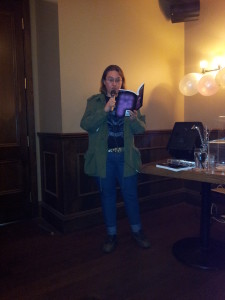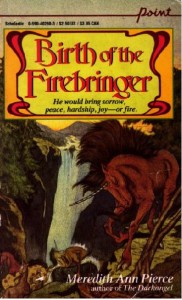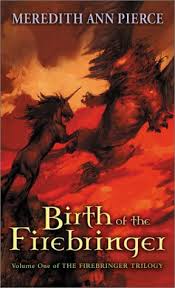“I haven’t done anything because I haven’t been feeling well.” For some people, this is a convenient excuse for lack of productivity. For others, particularly those with ongoing health challenges, it’s a fact of life that must be factored in to any schedule.
Writers are not one-size-fits-all. For example, at Superstars Writing Seminars, I learned that some successful authors are plotters who outline meticulously, and others are “pantsers,” masters of “winging it” and discovering where the story takes them through the act of writing it. Some authors accumulate word count slowly, day by day; others binge, setting aside blocks of time for intensive, exhaustive writing. And similarly, writers come with different physical capabilities.
Some authors have health challenges that need to be dealt with. These can be physical (ie repetitive strain injuries, neurological issues) or mental (ie depression, ADHD). Having a health challenge does not mean you cannot be a writer. It means you need to create a “game plan” that takes your specific needs into account.
It may mean you don’t produce as fast as someone else might. I’m not going to lie – I’d be more productive without the sprained tendon that’s put a splint on my index finger for the past week. I type more slowly as of late, and I type less–but by taking proper care of myself, I hope to be back writing normally again soon, rather than laid up with permanent damage. I’d definitely be more productive without migraine-induced aphasia, and I’ve spent some time feeling sorry for myself.
In the end, though, given that “a writer without aphasia” isn’t an option for me: what would I rather be? A writer with fewer short stories written in a year’s time, or not a writer at all?
It’s an easy answer.
Ultimately, only you can be the judge of when you’re using your health as an excuse to avoid work, and when you’re legitimately too sick to work. I’ve included below a list of points to think about that have proven helpful for me.
1. Be proactive with your health.
For me, this means not forgetting to take my pills. It means investing in an ergonomic keyboard and mouse and wearing protective armwear to minimize the risk of strain injuries. It means resting my eyes regularly. It means being aware of my posture. It means not eating the foods that trigger my migraines. I can’t make my health challenges go away, but I can do what is in my power to manage them, and I can take measures to prevent any more health challenges from developing.
2. Know your limitations (aka “If I’m too sick to watch TV or read, I’m too sick to write”).
If I don’t have the ability to passively follow a story and understand what’s happening, I don’t have the ability to actively create one. Know what you are physically able to do, and don’t play martyred hero by trying to go above and beyond. You’ll hurt yourself long term. Or, in the words of Jimmy Buffett, “the well-seasoned pro knows how far he can go.” If you’re not physically able right now, don’t beat yourself up – rest, so later, you will be.
3. If I’m not writing because I’m sick, I will willfully not be writing. If I am writing, I will willfully be writing. Either way, these are conscious and deliberate choices.
This is the difference between “I don’t feel able to write coherently, so I will spend the next hour looking at Tumblr / Facebook / Candy Crush / insert preferred entertainment here” and “oh hell where did the last hour go?? I was supposed to be writing!!” The first is a conscious choice that you will not write; you will consume entertainment instead. The second is a lack of discipline, focus, and/or time management.
There is nothing wrong with purposefully choosing to enjoy entertainments, particularly if you are unable to work and redirect the time for relaxation and recovery. There is a problem if you can’t separate entertainment time from work time, or if your online goof-off time isn’t relaxing you. Whether you choose to write on a given day or not, let it be a conscious choice.
I think I’ve had just as many times I’ve said “you know what, I’m feeling stronger. I’m going to go write now” as times I’ve said “You know what, I’ve been here an hour, struggling, feeling more weak and more tired than ever. I’m going to go rest instead.” Either way, I’ve been aware of my body and my needs and made deliberate choices accordingly.
4. Pushing myself for an arbitrary goal to the extent that it damages my health is counterproductive in the long term.
I know a lot of writers who do great by setting a minimum number of words to write each day. I’m not one of them. I tried it, and ended up sick within a month. Why? I pushed myself beyond my sustainable physical limits to meet those word count numbers, became overly fatigued, and ended up spending the better part of the next month too ill to write at all–or do much else, either.
I’ll burn the midnight oil to meet a story deadline or return a series of edits on time, but I won’t do so to meet an arbitrary number. There are some days I cannot write, and I accept that.
So, how do I get anything done?
5. I do my best work by prioritizing writing over entertainment on days I’m feeling well.
If I get up in the morning on a Saturday and I feel good, I don’t immediately turn on the Xbox or open up a comic book. I get on the computer and write. Once I’m mentally tired, I can enjoy video games or comics if I still have energy to do so. If not, I go to bed knowing I’ve been productive. This means I play a lot less Halo since becoming a published writer, but on the flip side, I’m a published writer.
I block off whole weekend days solely for writing. If I’m feeling well, I can get a lot done in 12 focused, dedicated hours. This system works well for me, so I use it. If it doesn’t work for you, don’t use it. Adapt to your needs.
6. I will not write on days when editing what I’ve written will take more time and effort than just waiting to write on a day when I feel better. I will rest and do necessary chores within my ability so when I do feel better, I can focus on my writing.
I have migraine-induced aphasia. That means, when I’m experiencing a certain type of migraine, it damages my ability to use language. I can think just fine, and I feel okay, but I can’t communicate properly.
Here’s a fantasy story about a horseman. If I’m trying to write when I’m aphasic, I will produce sentences that look like this:
Jeogi did the one that uys the up to the house and made yt for to do go.
When I go back to edit, first I have to clean up the spelling:
Georgi did the one that was the up to the house and made it for to do go.
and then I have to figure out what the hell I meant by that sentence. First, by replacing the words that aren’t the words I meant to use:
Georgi did the one that was the up to the horse and made it for to do go.
And then by replacing the phrases used to describe words my brain wouldn’t provide at the time:
Georgi climbed to the horse and spurred it…[idea of movement].
But there’s still incorrect and incomplete phrasing:
Georgi climbed onto the horse and spurred it forward into a trot.
There! That’s a presentable sentence.
That’s also a lot of editing work.
Frankly, I get further ahead by waiting for a day when I’m capable of writing the sentence in under ten seconds, then working hard all day while aphasic and then putting in double time later deciphering and cleaning up what I wrote. I’ll spend my aphasia day getting my laundry done, my house swept and a big pot of soup cooked. This lets me spend my next good day writing, not doing housework.
The moral of this story? Only you can judge your own limitations. There are some people who tell writers to write every day, no matter what, but I bet those people have never seen what 5000 words of my aphasic English looks like. Or maybe you can edit more quickly than I can, and writing those 5000 words of aphasic English are worth it for you. Or maybe you outline on your off days, and write on your strong days.
You can’t lie to yourself. With a little self-awareness, you’ll know whether “I couldn’t work because I didn’t feel well” is true or not. If it’s not true, then you’re only cheating yourself. But if it is true, you have nothing to be ashamed of – you’re doing your best within the scope of your abilities, which is all anyone can ask.
 I am not, by nature, a party person. My idea of a good time is more likely to involve a stack of comic books, a couple cats, my couch and a cold beer than a room full of chatty strangers. Becoming a published writer has forced me to step outside my comfort zone, first for networking, now for promotion, but I’d always viewed it as a necessary evil rather than something I actually enjoyed.
I am not, by nature, a party person. My idea of a good time is more likely to involve a stack of comic books, a couple cats, my couch and a cold beer than a room full of chatty strangers. Becoming a published writer has forced me to step outside my comfort zone, first for networking, now for promotion, but I’d always viewed it as a necessary evil rather than something I actually enjoyed.

